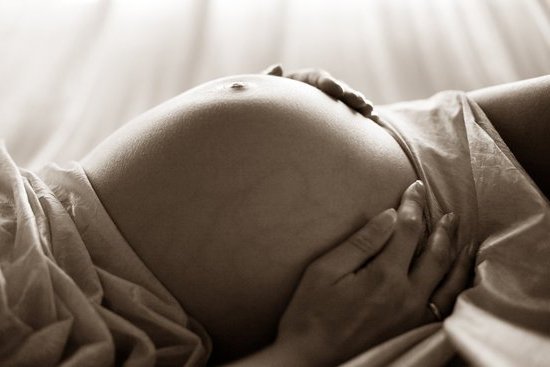When does constipation in pregnancy start? For many expectant mothers, this question becomes a pertinent concern as they navigate the various bodily changes that come with carrying a child. Constipation is a common issue during pregnancy that can have a significant impact on the comfort and health of pregnant women. Understanding the causes, symptoms, and onset of constipation in pregnancy is essential for ensuring the well-being of both mother and baby.
Constipation, in general, is characterized by infrequent or difficult bowel movements. It can be caused by a variety of factors such as dietary habits, lack of exercise, certain medications, and underlying medical conditions. During pregnancy, hormonal shifts and physical changes in the body can exacerbate these factors and contribute to constipation. The expanding uterus puts pressure on the intestines, slowing down the transit time of stool and leading to increased water absorption in the colon, making stools harder to pass.
As the body undergoes significant transformations to support the growing fetus, constipation in pregnancy can start as early as the first trimester for some women. However, it is more commonly reported in the second and third trimesters when hormonal fluctuations are at their peak.
Factors such as pre-existing gastrointestinal issues, inadequate fiber intake, dehydration, and certain prenatal vitamins can also play a role in initiating constipation during pregnancy. By understanding when constipation typically begins during pregnancy and what influences its onset, expectant mothers can take proactive steps to manage this common discomfort effectively.
Understanding Constipation
Constipation is a common issue that many people experience at some point in their lives. It is characterized by infrequent bowel movements, difficulty passing stools, and hard or lumpy feces. This condition can lead to discomfort, bloating, and abdominal pain. Understanding the causes and symptoms of constipation is essential in addressing this concern, especially during pregnancy when hormonal changes can exacerbate the issue.
Causes of Constipation
Constipation can be caused by a variety of factors, including inadequate fiber intake, dehydration, lack of physical activity, and certain medications. During pregnancy, hormonal shifts play a significant role in slowing down the digestive system and relaxing the muscles in the intestines. This can lead to slower transit times for food through the gastrointestinal tract, resulting in constipation. Additionally, as the uterus expands during pregnancy, it may put pressure on the intestines, further contributing to bowel irregularities.
Symptoms of Constipation
The symptoms of constipation can vary from person to person but often include fewer than three bowel movements per week, straining during bowel movements, feeling like you haven’t completely emptied your bowels, and passing hard or small stools. Pregnant women may also experience bloating and abdominal discomfort due to constipation. Recognizing these symptoms is essential in identifying when constipation begins during pregnancy and taking steps to manage it effectively.
Changes in the Body During Pregnancy
During pregnancy, a woman’s body undergoes numerous changes to accommodate the growing fetus and prepare for childbirth. Hormonal shifts, such as elevated levels of progesterone, play a significant role in these transformations. Progesterone is known to relax smooth muscle tissue throughout the body, including the gastrointestinal tract. This relaxation slows down the movement of food through the digestive system, leading to longer transit times and increased water absorption in the colon – a major factor contributing to constipation.
Additionally, as the uterus expands to make room for the developing baby, it can put pressure on adjacent organs, including the intestines. This physical compression can further hinder normal bowel movements and exacerbate constipation symptoms. The combined effects of hormonal changes and physical alterations during pregnancy create an environment that is conducive to constipation development.
Impact on Digestive System
The impact of these changes on the digestive system is often felt early in pregnancy, with many women experiencing constipation starting in the first trimester. As progesterone levels rise rapidly during this time, its effects on smooth muscle relaxation become more pronounced.
The sluggish movement of food through the gastrointestinal tract coupled with increased water reabsorption by the colon can lead to harder stools and difficulty passing them. It is not uncommon for pregnant women to struggle with constipation throughout their pregnancy due to these ongoing physiological adjustments.
Coping Strategies
To manage constipation during pregnancy, expectant mothers are advised to adopt dietary and lifestyle changes that promote regular bowel movements. This includes increasing fiber intake from fruits, vegetables, whole grains, and legumes, drinking plenty of water to stay hydrated, engaging in regular physical activity to encourage intestinal motility, and establishing a consistent bathroom routine.
Some women may also find relief from over-the-counter stool softeners or laxatives recommended by their healthcare providers. By understanding how hormonal shifts and physical changes impact their digestive system, pregnant individuals can take proactive steps to alleviate constipation discomfort and maintain their overall well-being during this transformative phase of life.
When Does Constipation in Pregnancy Start
During pregnancy, constipation can be a common and uncomfortable issue for many expectant mothers. Understanding when constipation in pregnancy starts is crucial in taking proactive steps to manage this condition effectively. Typically, constipation may begin early in the first trimester and continue throughout the duration of the pregnancy due to various factors.
Factors that Influence the Onset of Constipation During Pregnancy:
1. Hormonal Changes: The surge in hormones, particularly progesterone, during pregnancy can relax and slow down the muscles of the digestive tract. This relaxation can lead to slower movement of food through the intestines, resulting in constipation.
2. Physical Changes: As the uterus expands to accommodate the growing baby, it exerts pressure on the intestines. This pressure can also contribute to slowed digestion and constipation.
3. Prenatal Vitamins: Iron supplements, commonly prescribed during pregnancy to prevent anemia, are known to cause constipation as a side effect due to their impact on bowel movements.
Understanding these factors can help expectant mothers prepare for and manage constipation effectively throughout all stages of pregnancy by making necessary adjustments in diet, lifestyle, and hydration levels.
Ways to Alleviate Constipation During Pregnancy:
– Stay Hydrated: Drinking plenty of water throughout the day helps soften stools and promote regular bowel movements.
– High-Fiber Diet: Including fiber-rich foods like fruits, vegetables, whole grains, and legumes in your diet can help bulk up stools and aid in digestion.
– Regular Exercise: Engaging in light physical activity such as walking or prenatal yoga can stimulate bowel movements and improve overall digestion.
By being mindful of these factors and incorporating preventive measures into daily routines, expectant mothers can better manage constipation during pregnancy and promote their own well-being along with their baby’s health.
Risks and Complications
Constipation during pregnancy can pose various risks and potential complications for expectant mothers. One of the common issues that can arise from persistent constipation is the development of hemorrhoids. Hemorrhoids are swollen veins in the rectal area that can be painful and uncomfortable, making bowel movements even more challenging. The increased pressure on the veins from constipation can contribute to the formation of hemorrhoids, causing additional discomfort for pregnant women.
Another risk associated with constipation during pregnancy is the possibility of experiencing bowel obstruction. When fecal matter becomes impacted in the intestines due to severe constipation, it can lead to a blockage that prevents normal bowel movements. This condition can result in abdominal pain, bloating, and even more serious complications if left untreated. Expectant mothers who are already dealing with hormonal changes and physical discomfort may find bowel obstruction due to constipation particularly distressing.
It is essential for pregnant women to be aware of these potential risks linked to constipation during pregnancy and take steps to prevent or manage this issue effectively. By following a well-balanced diet rich in fiber, staying hydrated, and engaging in regular physical activity, expectant mothers can help promote healthy digestion and reduce the likelihood of developing complications like hemorrhoids or bowel obstruction.
If constipation persists despite these measures or if any concerning symptoms arise, seeking medical advice promptly is crucial for ensuring both maternal and fetal well-being.
| Risks and Complications | Associated Risks During Pregnancy |
|---|---|
| Hemorrhoids | Painful swollen veins in rectal area |
| Bowel Obstruction | Blockage preventing normal bowel movements |
Tips for Prevention
During pregnancy, constipation can be a common and uncomfortable issue that many expectant mothers experience. The hormonal shifts and physical changes that occur in the body during this time can impact the digestive system, leading to difficulties with bowel movements. So, when does constipation in pregnancy start?
Typically, constipation can begin as early as the first trimester for some women, while others may notice symptoms later on in their pregnancy journey. It is important to be aware of the signs and factors that contribute to constipation in order to effectively manage and prevent it.
One of the primary causes of constipation during pregnancy is the hormone progesterone, which relaxes smooth muscle tissue throughout the body, including the gastrointestinal tract. This relaxation can slow down the movement of food through the intestines, resulting in harder and drier stools that are difficult to pass.
Additionally, as the uterus expands and puts pressure on the rectum, it can further contribute to constipation. These changes in the body’s function are vital to understand when discussing strategies for prevention.
To prevent or alleviate constipation during pregnancy, there are several practical tips and strategies that expectant mothers can implement. First and foremost, maintaining a well-balanced diet rich in fiber is crucial for promoting regular bowel movements. Foods such as fruits, vegetables, whole grains, and legumes are excellent sources of fiber that can help soften stool and ease passage.
Staying hydrated by drinking plenty of water throughout the day also plays a significant role in preventing constipation. Regular physical activity or exercise can aid in promoting digestion and reducing symptoms of constipation as well. Incorporating these dietary recommendations and lifestyle changes into daily routines can make a significant difference in managing constipation during pregnancy.
| Key Recommendations | Details |
|---|---|
| Eat More Fiber-Rich Foods | Including fruits, vegetables, whole grains, legumes |
| Stay Hydrated | Drink plenty of water throughout the day |
| Regular Physical Activity | Engage in exercise to promote digestion |
When to Seek Medical Help
During pregnancy, constipation is a common issue that many expectant mothers face. While it often starts in the early stages of pregnancy, some women may not experience symptoms until later on. Understanding when constipation in pregnancy starts can help women take proactive measures to manage this discomforting condition.
- Constipation during pregnancy can typically start in the first trimester for some women. This is when hormonal changes, such as an increase in progesterone levels, slow down the digestive process, leading to difficulty passing stools.
- For others, constipation may become more pronounced in the second or third trimester as the growing uterus puts pressure on the intestines, making elimination challenging. Changes in diet and physical activity during pregnancy can also contribute to constipation.
- Some warning signs that may indicate constipation in pregnancy requires medical attention include severe abdominal pain or cramping, prolonged periods of not being able to pass stool, rectal bleeding, or unexplained weight loss. These symptoms could signal underlying issues like hemorrhoids or bowel obstruction that require evaluation by a healthcare provider.
It is essential for pregnant women to be mindful of their bowel habits and address any concerns promptly to ensure both their own well-being and that of their baby. While mild constipation is common during pregnancy and can often be managed through lifestyle modifications like increasing fiber intake and staying hydrated, persistent or severe symptoms should not be ignored. Seeking medical help when needed can help prevent any potential complications and ensure a smoother pregnancy journey.
Conclusion
Constipation during pregnancy is a common issue that many expectant mothers face, typically starting in the early stages of pregnancy. The hormonal shifts and physical changes that occur during this time can significantly impact the digestive system, leading to slowed bowel movements and discomfort. While constipation itself may not pose a direct threat to the mother or baby, it can lead to complications such as hemorrhoids or bowel obstruction if left untreated.
Managing constipation in pregnancy is crucial for ensuring the well-being of both the mother and baby. By following simple tips such as staying hydrated, eating fiber-rich foods, and engaging in regular physical activity, expectant mothers can help prevent or alleviate constipation. Additionally, seeking medical help when needed and being aware of warning signs like severe abdominal pain or bloody stools is essential in ensuring any underlying issues are addressed promptly.
In conclusion, understanding when constipation in pregnancy starts and taking proactive steps to manage it is vital for the overall health and comfort of expectant mothers. By staying informed about the causes and symptoms of constipation during pregnancy, women can navigate this common challenge with confidence and prioritize their well-being throughout this special time in their lives.
Remember, a healthy mom leads to a healthy baby, so taking care of yourself during pregnancy includes addressing uncomfortable but manageable issues like constipation.
Frequently Asked Questions
How Early in Pregnancy Do You Get Constipated?
Constipation can occur early in pregnancy due to hormonal changes that slow down the digestive system. It may start as early as the first trimester and continue throughout the pregnancy.
What Are Signs of Constipation During Pregnancy?
Signs of constipation during pregnancy include infrequent bowel movements, difficulty passing stool, bloating, abdominal discomfort, and straining during bowel movements. It can also lead to hemorrhoids and anal fissures.
Is It OK to Push Hard to Poop While Pregnant?
It is not recommended to push hard to poop while pregnant as it can increase the risk of complications such as hemorrhoids or causing undue stress on your body. Gentle methods like staying hydrated and eating fiber-rich foods are preferred.

Welcome to my fertility blog. This is a space where I will be sharing my experiences as I navigate through the world of fertility treatments, as well as provide information and resources about fertility and pregnancy.





